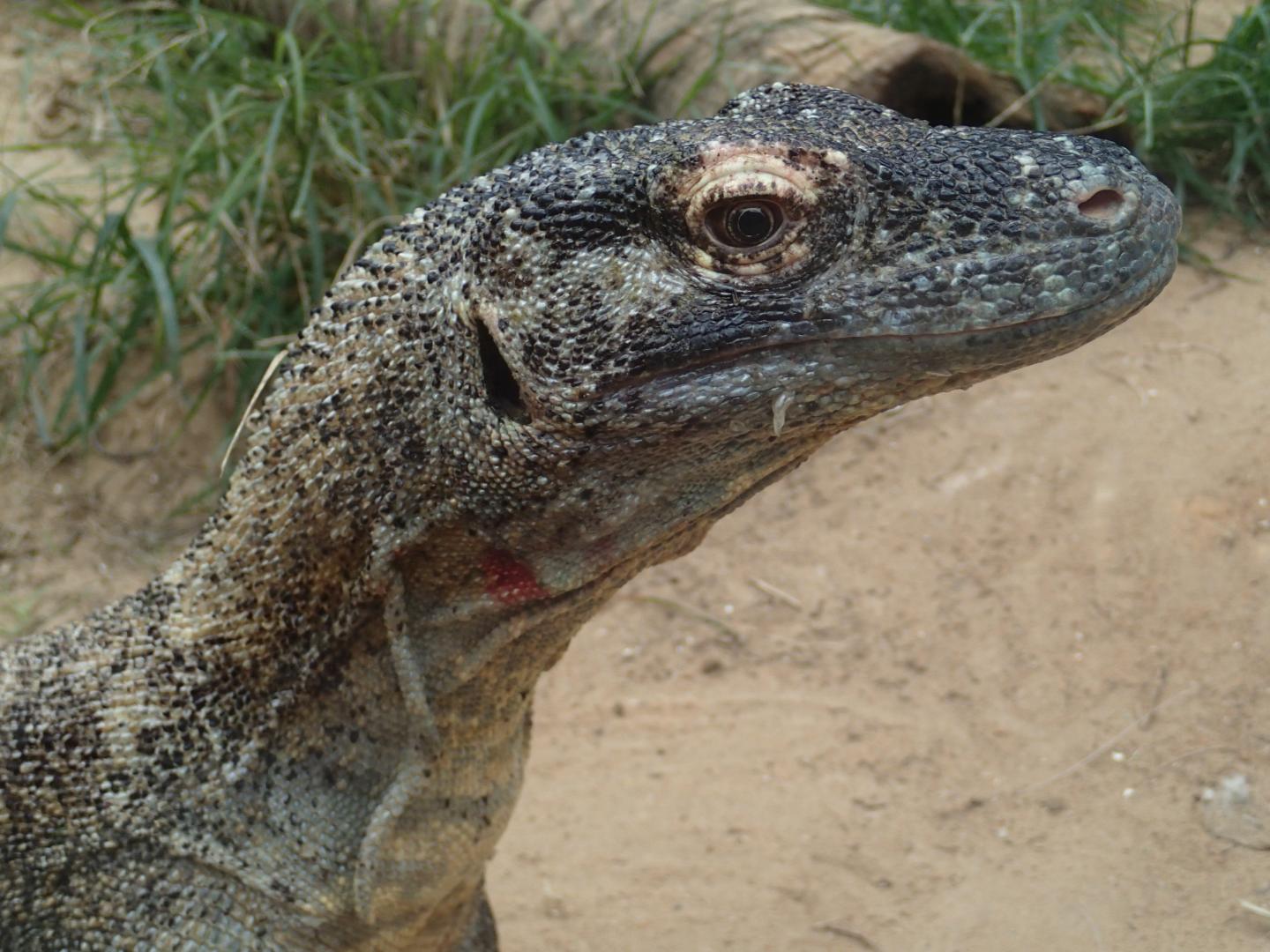
Credit: Kent Vliet
In a land where survival is precarious, Komodo dragons thrive despite being exposed to scads of bacteria that would kill less hardy creatures. Now in a study published in the Journal of Proteome Research, scientists report that they have detected antimicrobial protein fragments in the lizard's blood that appear to help them resist deadly infections. The discovery could lead to the development of new drugs capable of combating bacteria that have become resistant to antibiotics.
The world's largest lizard, Komodo dragons live on five small islands in Indonesia. The saliva of these creatures contains at least 57 species of bacteria, which are believed to contribute to the demise of their prey. Yet, the Komodo dragon appears resistant to these bacteria, and serum from these animals has been shown to have antibacterial activity. Substances known as cationic antimicrobial peptides (CAMPs) are produced by nearly all living creatures and are an essential part of the innate immune system. So, Barney Bishop, Monique van Hoek and colleagues at the College of Science at George Mason University wondered whether they could isolate CAMPs from Komodo dragon blood, as they previously had done with alligator blood to expand the library of known CAMPs for therapeutic studies.
The team used an approach known as bioprospecting. They incubated Komodo dragon blood with negatively charged hydrogel particles that they developed to capture the peptides, which are positively charged. With this method, they identified and sequenced 48 potential CAMPs with mass spectrometry. All but one of these was derived from histone proteins, which are known to have antimicrobial activities. Eight were synthesized and tested against Pseudomonas aeruginosa and Staphylococcus aureus. Seven of the peptides showed significant potency against both bacteria. The eighth was only effective against P. aeruginosa. The researchers conclude that Komodo dragon blood plasma contains a host of potentially viable antimicrobial peptides that could help lead to new therapeutics.
###
The authors acknowledge funding from the Defense Threat Reduction Agency (DTRA).
The abstract that accompanies this study is available here.
The American Chemical Society is a nonprofit organization chartered by the U.S. Congress. With nearly 157,000 members, ACS is the world's largest scientific society and a global leader in providing access to chemistry-related research through its multiple databases, peer-reviewed journals and scientific conferences. ACS does not conduct research, but publishes and publicizes peer-reviewed scientific studies. Its main offices are in Washington, D.C., and Columbus, Ohio.
To automatically receive news releases from the American Chemical Society, contact [email protected].
Follow us on Twitter | Facebook
Media Contact
Katie Cottingham
[email protected]
301-775-8455
@ACSpressroom
http://www.acs.org
############
Story Source: Materials provided by Scienmag





